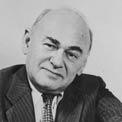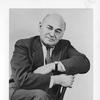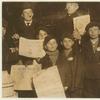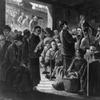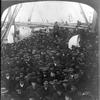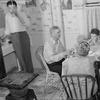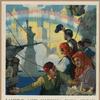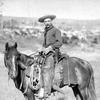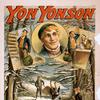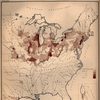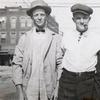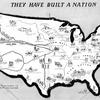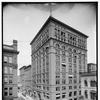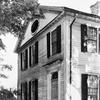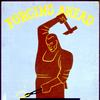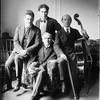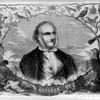Gilbert Seldes (1893-1970) was a well-known cultural critic and broadcaster.
Seldes was born in a farm in Alliance, N.J., without electricity or running water. During his college years he became the editor of the Harvard Monthly. Always a champion of the lively (or popular) arts, in 1924 he published an influential collection of essays, The Seven Lively Arts. In 1937 he became CBS's first Director of Programming. He later hosted a famously eclectic show on WNYC called The Lively Arts.
Gilbert Seldes appears in the following:
Tuesday, January 01, 1957
Jazz on TV; Marian Anderson's tour of the Orient; Louis Armstrong on TV.
Tuesday, December 07, 1954
This episode is from the WNYC archives. It may contain language which is no longer politically or socially appropriate.
Gilbert Seldes says it's interesting that "The Living Room" was produced at all in this country. It is fundamentally a religious play. Quotes a review in Time: "brings darkness to light ...
Monday, January 11, 1954
This episode is from the WNYC archives. It may contain language which is no longer politically or socially appropriate.
Seldes apologizes for an absence over the holidays. Arts in the news. A new television network for movies in Italy. Psychological difference among the audience between watching movies at home and ...
Tuesday, April 25, 1950
Silent screen legend Mary Pickford says current movie stars are exploited by the system. She laments that the glamor of the past has disappeared.
Sunday, August 27, 1939
Italians were the first to come as so-called discoverers and at the time of this broadcast, the last major group to arrive as immigrants. Their contributions to America are many.
Sunday, August 20, 1939
This episode takes a look at how the Chinese and Japanese contributed to the building of the United States.
Sunday, August 20, 1939
The Slavs, Poles, Czechs, and Slovaks come to America after the Civil War to work in the nation's mills and mines.
Sunday, August 13, 1939
The eastern and southern Slavs and their contribution to America's development, beginning in 1747. This program is also dedicated to The Boy Scouts Of America, celebrating its twenty ninth year.
Sunday, July 30, 1939
How Jewish people co-operated with other groups at Valley Forge during the Revolutionary War and went on to contribute in many other ways to the development of the country.
Sunday, July 23, 1939
The years between the Civil War and our immediate past are the focus of this episode.Cherokee land is opened to settlers and Immigrants from all countries follow.. Cattlemen become enemies of the homesteaders and the Industrial Revolution begins.
Sunday, July 16, 1939
How the people from Norway, Sweden, Finland and Denmark contributed to the United States.
Sunday, July 09, 1939
The story of the Germans, who came to America in greater numbers than any other group making up nearly one fourth of the nation's immigrants.
Sunday, July 02, 1939
The Irishman has lent a greatly needed optimistic quality to American life--E. S. BOGARDUS. Soon after the Pilgrims had landed at Plymouth Rock in 1620, small groups of Irish came to the colonies. Then, by the millions starting with the potato famine of 1845.
Sunday, May 07, 1939
The final program of the series is a short history of the United States, emphasizing collaboration among diverse groups of immigrants.
Sunday, April 30, 1939
The story of Saint Paul, Minnesota: its settlement and growth via contributions from French, Swedish and German immigrants.
Sunday, April 23, 1939
Hatfield, Massachusetts, is profiled as a typical early American town that was changed by its immigrants beginning in the 17th Century.
Sunday, April 16, 1939
Contributions from immigrants to American social change movements such as populism, labor unions, education, and universal suffrage. They begin with The Quakers.
Sunday, April 09, 1939
Selected contributions by immigrants to literature, architecture, motion pictures, music, and industrial design. Edgar Allan Poe is included.
Sunday, April 02, 1939
A history of science in the United States highlighting contributions from foreign-born Americans. John James Audubon is among those profiled.

